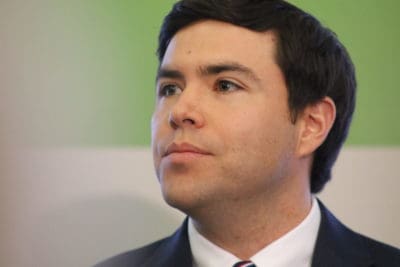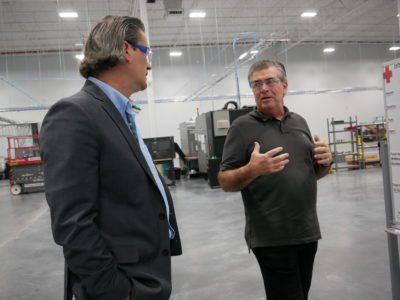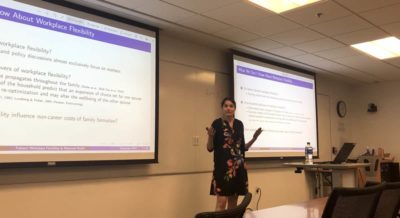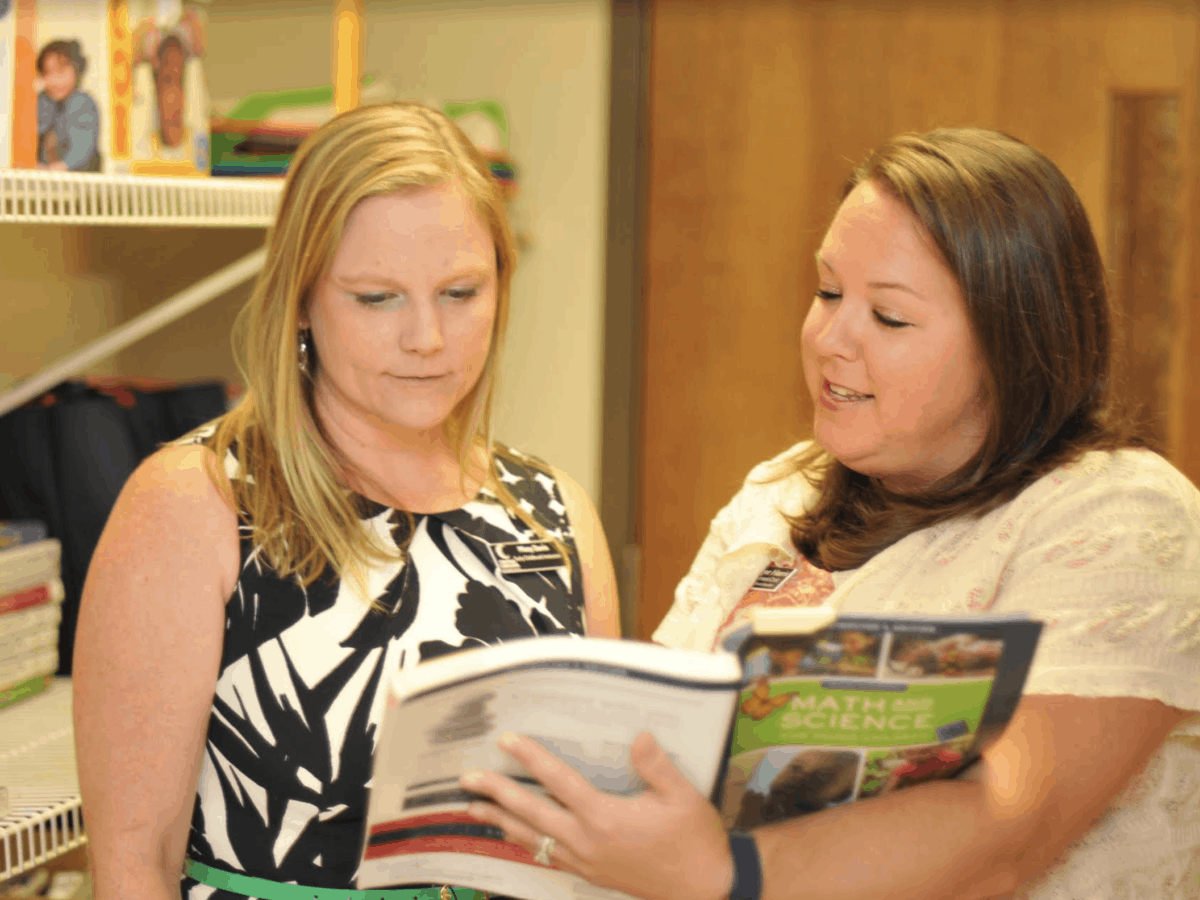
When Ginger Harris graduated from high school in Chatham County, she didn’t know exactly what was next. Her parents didn’t go to college, and she wasn’t sure what she wanted to do.
“I didn’t have anyone there to guide me,” Harris said. She considers what happened next a message from God. At church one Sunday, a woman told her about an AmeriCorps program to work with young children through the Child Care Services Association (CCSA) in Chapel Hill.
Throughout the next year, Harris spent 30 hours a week working in different child care centers and classrooms. The CCSA grant was aimed at supporting early childhood teachers going back to school — program participants like Harris would fill in for the teachers while they worked towards degrees.
After a year with CCSA, Harris got a full-time position at University Child Care Center in Chapel Hill. In a time before online classes were an option, Harris would work during the day and attend Central Carolina Community College courses at night.
“It was a juggling act between having a family and work and school and a social life, but I think one of the things I learned is that if you want something bad enough, you’ll find a way to do it,” she said.
Harris said she found the support she’d been lacking at the community college. Her advisors and professors saw potential in Harris.
“Their guidance and their belief in me is what motivated me to keep going to college,” she said.
Learn more about faculty pay
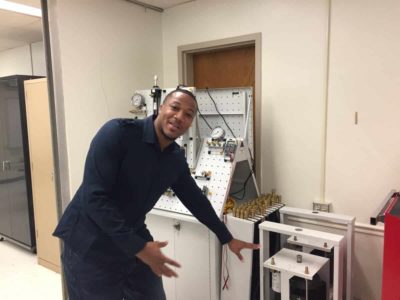
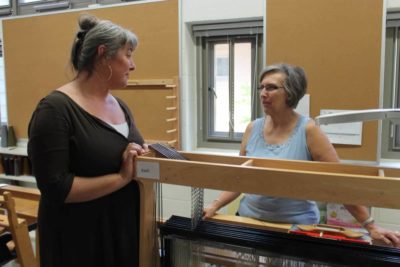
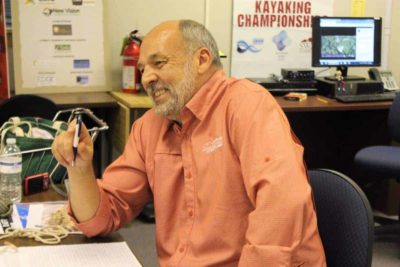
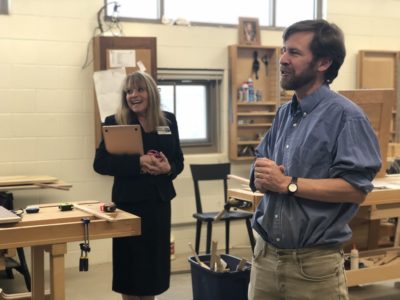
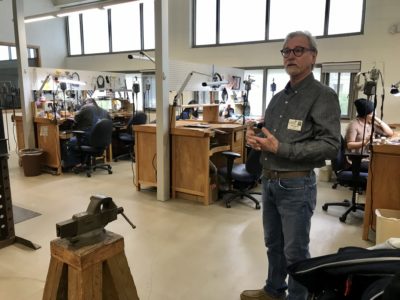
Throughout seven years of different jobs — as a nanny, an early childhood teacher at multiple centers, a preschool EC coordinator for a school district — Harris earned her associate, bachelor’s, and master’s degrees. She said throughout that entire time period, she knew she wanted to eventually return to the place that jumpstarted her education and career: Central Carolina Community College.
Harris is now the chair of the early childhood education department at the college, where she has worked as both an advisor and professor since 2006. In 2019, Harris won the community college system’s Excellence in Teaching award. She was the college’s 2018 faculty member of the year. Harris sits on committees for the college’s curriculum and advising. She sits on the county’s Smart Start partnership board, and is involved in multiple community organizations — all while teaching at least four courses and advising around 60 students per semester.
Harris said she can look back over her time at CCSA, her years as a community college student, and her balancing acts between being both an educator and a student, and see how her path led her to help her current students — many of whom are working while going to school.
“I had advisors and faculty who were either really supportive and believed in me, or a couple that were adamant that I couldn’t do it… I like to think that my experiences are one of the things that helped me become a better advisor and faculty member,” she said.
Hearing her students’ goals and helping them craft ways to achieve them is what keeps Harris motivated. She often tells a story of a 65-year-old student who finished her degree after losing her mom and coming close to giving up on her education. Harris was a steady encouragement along the way.
“It’s so rewarding in those moments, to watch them meet their goal, whatever their goal is… even if it is to say they finished their degree after 20 years, whatever it is.”
Harris said her students often face barriers throughout their educational journeys, whether they are financial or emotional. She has been the first person a student came to when she found out she was pregnant and the first person a student came out to.
She said meeting students where they are is important, some of which happens through college resources like a food and clothes closet and free child care. Other necessary support comes through simply listening.
“It’s more than just the instruction part and the school part,” Harris said. “You can’t be a good instructor until all their needs are met.”
An advocate for the field
Since she has been at the college, Harris said she has worked to bring rigor to the early childhood education department.
“When I started working years ago, students would just get put into our program through high school counselors if they were a female and they didn’t know what they wanted to do because anybody could take care of kids,” Harris said. “I worked really really hard to try to change that. We went through our whole program and revamped the level of expectations. It’s not necessarily an easy program to go through.”
Though she has seen a cultural shift at the college, Harris said she wishes she could say the same about the profession in terms of compensation, education requirements, and respect.
“We still have that perception in society that anybody can take care of children,” she said.
Harris said she works on the front end to help her students see themselves and carry themselves as professionals. But larger change is needed, she said, for better working conditions and pay.
She said more people are understanding the importance of early brain development but aren’t willing to make such a long-term investment.
“It’s almost like we operate in crisis mode all the time with budgets and things instead of how can we fix this in the long-term?”
When asked how she prepares her students to enter a profession that often does not pay a living wage, Harris said she has realistic conversations with her students.
“We talk about that in class, that there’s going to be times that they’re going to feel burnout and they’re going to wonder why they chose this profession,” Harris said. She asks her students during their final semester to write down three positive things that happen each week for 16 weeks. These are normally small things, she said — a child making progress sitting up, a child learning a new word.
She said she hopes this reminds them, in hard times, of the joy of early childhood teaching.
“I want them to look at that and remember those things that maybe weren’t important to other people,” Harris said. “If that was something you struggled with, at some point you’re going to look back and you’re going to reflect on that, and that’s going to make you smile… Hopefully they can have some kind of little gratitude things to take with them.”
Recommended reading
